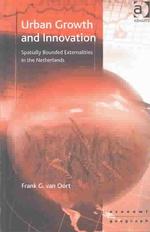- ホーム
- > 洋書
- > 英文書
- > Nature / Ecology
Full Description
Half a century ago, many democratic states started to respond to environmental pressures that had arisen in the wake of rapid industrialization. They set up environmental ministries and agencies and issued legislation to control the pollution of air and water and to manage industrial processes, wastes and toxic substances. This was the birth of the environmental state. With planetary ecological challenges like climate change spiraling out of control and dwarfing the environmental state's classical tasks of environmental management, new questions about the transformative capacities of the state are becoming acute today. How large is the state's capability to transform enhanced industrial societies into sustainable post-carbon societies? Do its new environmental functions empower the state to prioritise ecological goals over economic growth? Can the state's environmental management capabilities be radicalised to turn it into a 'sustainability state'? Can democracies be enhanced to enlarge the state's transformative capacities?
The Political Prospects of a Sustainability Transformation: Moving Beyond the Environmental State explores these and other questions from a variety of theoretical and empirical angles, covering the fields of democratic theory, theories of the state, political economy, political sociology, rhetoric and political philosophy.
The chapters in this book were originally published as a special issue of the journal Environmental Politics.
Contents
Preface
Marit Hammond and Daniel Hausknost
Introduction
Daniel Hausknost and Marit Hammond
1. The environmental state and the glass ceiling of transformation
Daniel Hausknost
2. The legitimation crisis of democracy: emancipatory politics, the environmental state and the glass ceiling to socio-ecological transformation
Ingolfur Blühdorn
3. The 'glass ceiling' of the environmental state and the social denial of mortality
Richard McNeill Douglas
4. The environmental state between pre-emption and inoperosity
Luigi Pellizzoni
5. Inventing the environmental state: neoliberal common sense and the limits to transformation
Sophia Hatzisavvidou
6. The state in the transformation to a sustainable postgrowth economy
Max Koch
7. Potential for a radical policy-shift? The acceptability of strong sustainable consumption governance among elites
Sanna Ahvenharju
8. Democracy, disagreement, disruption: agonism and the environmental state
Amanda Machin
9. Sustainability as a cultural transformation: the role of deliberative democracy
Marit Hammond








